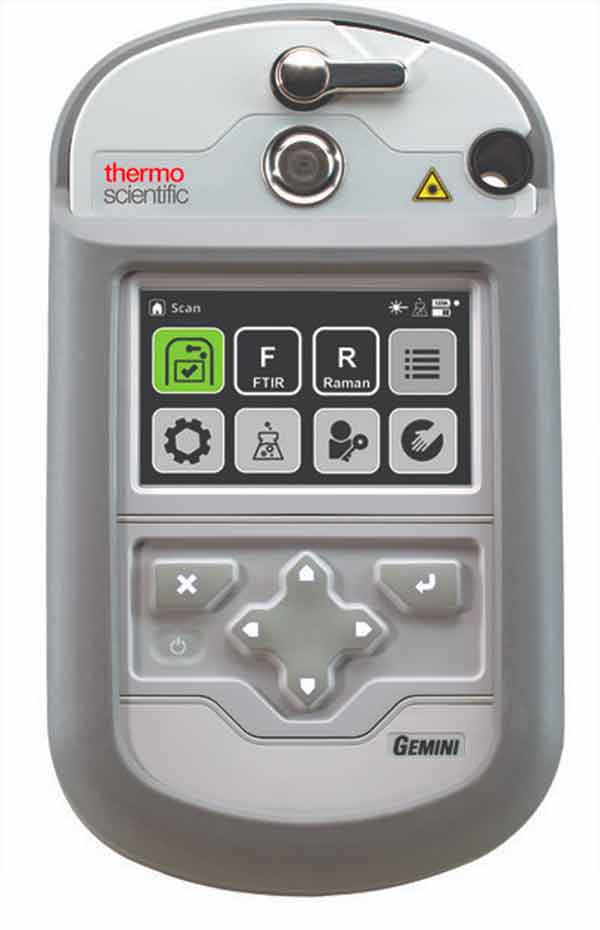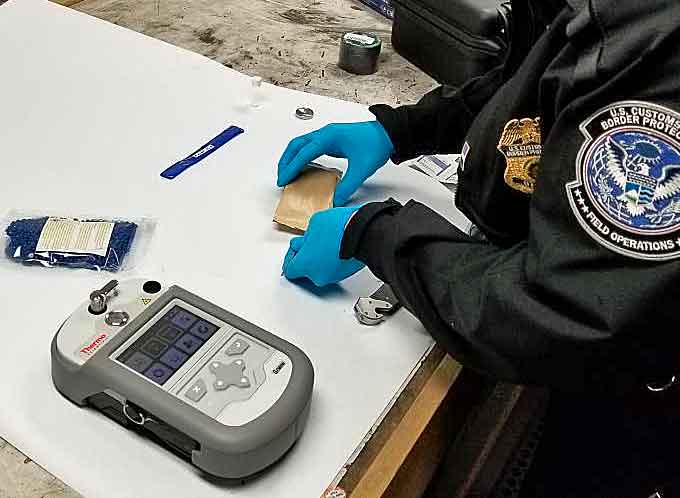U.S. Customs and Border Protection (CBP) Office of Field Operations (OFO) at the Detroit Metropolitan Airport recently acquired additional new technology with the ability to sample and identify over 14,000 chemical substances.
CBP continues to employ innovative methods and tools to detect, intercept and prevent dangerous drugs from entering the United States while also keeping frontline officers safe.
CBP officers at the Detroit Metropolitan Airport recently received specialized training on a new handheld elemental isotype analysis tool called Gemini® that can identify hazardous chemicals and drugs coming into the United States via express consignment shipments and other means of transportation.
(Learn More. The Thermo Scientific Gemini analyzer combines FTIR and Raman spectroscopy into a light, rugged handheld instrument for a fast, confident response in the field. Courtesy of Thermo Scientific and YouTube)
The Thermo Scientific™ Gemini™ Analyzer is the first to integrate these complementary and confirmatory chemical identification techniques in a rugged, lightweight, handheld solution.

Available with the HazMasterG3™ decision support system from Alluviam LLC, Gemini gives military personnel, bomb technicians, hazmat teams and first responders significant tactical advantage, helping them minimize time on target and confidently make life-saving decisions.
“Our officers now have the ability to safely sample unknown substances in real time, and get instant results,” explains CBP Port Director Devin Chamberlain.
“This in turn saves time while protecting our officers and the general public from potentially hazardous materials.”
“We are dedicated to combatting the threat that fentanyl and other dangerous drugs pose to our nation.”
According to the Centers for Disease Control and Prevention (CDC), drug overdose deaths and opioid-involved deaths continue to increase in the United States.
The majority of drug overdose deaths involve an opioid.
In 2016, the number of overdose deaths involving opioids (including prescription opioids and heroin) was 5 times higher than in 1999.
From 2000 to 2016, more than 600,000 people died from drug overdoses. On average, according to the CDC, 115 Americans die every day from an opioid overdose.
(Learn More. Opioid overdose emergency department visits rose 30% in all parts of the U.S. from July 2016 through September 2017. Courtesy of the Centers for Disease Control and Prevention (CDC) and YouTube. Posted on Mar Mar 6, 2018)

















